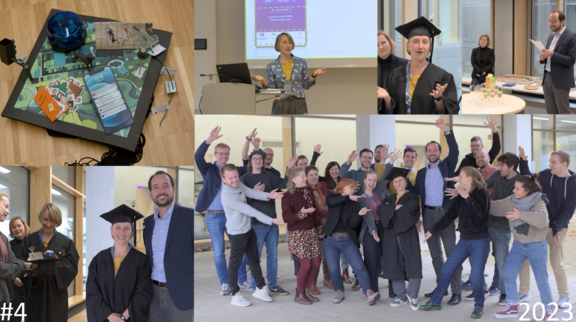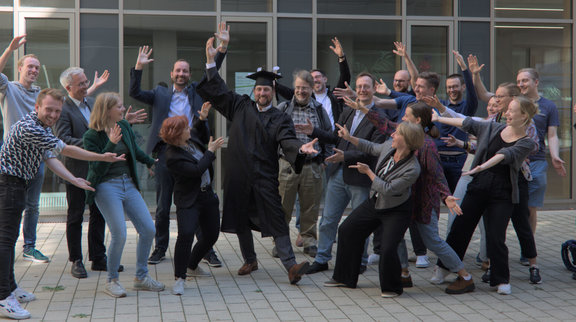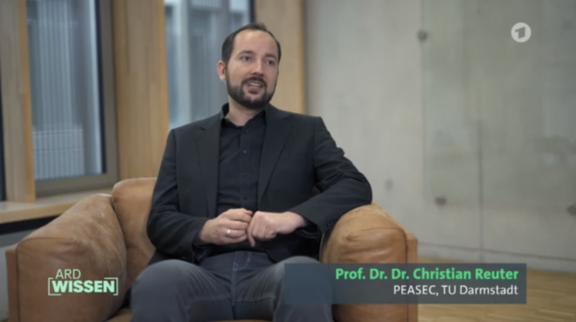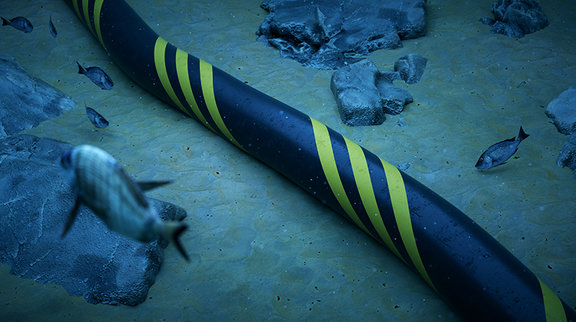
Congratulations to Dr. rer. nat. Jasmin Haunschild
Jasmin Haunschild, an ATHENE scientist, completed the final part of her doctoral thesis at the Department of Computer Science at the TU Darmstadt. Her thesis titled "Enhancing Citizens' Role in Public Safety: Interaction, Perception and Design of Mobile Warning Apps" was written as part of the ATHENE research area Secure Urban infrastructures (SecUrban). Her thesis was supervised by Prof. Dr. Dr. Christian Reuter and co-supervised by Prof. Dr.-Ing. Frank Fiedrich. The thesis was reviewed and recommended for acceptance by the Department of Computer Science. The oral examination was chaired by Prof. Dr. Marco Zimmerling, with Prof. Dr. Jan Gugenheimer and Prof. Dr. Joachmin Vogt also involved as examiners.
read more
Congratulations to ATHENE researcher Thomas Reinhold on the successful defense of his doctoral thesis
We are pleased to announce that ATHENE researcher Thomas Reinhold has successfully completed his dissertation at the Department of Computer Science at TU Darmstadt, on his path to obtaining a "Dr. rer. nat." degree. His dissertation, "Towards a Peaceful Development of Cyberspace - Challenges and Technical Measures for the De-escalation of State-led Cyberconflicts and Arms Control of Cyberweapons," was written as part of the ATHENE research area, Secure Urban Infrastructure (SecUrban). The research was supervised by Prof. Dr. Dr. Christian Reuter, the coordinator of the research area and Head of the Department of Science and Technology for Peace and Security (PEASEC) at TU Darmstadt.
read more
ATHENE researchers publish their work in the journal IEEE Transactions on Technology and Society
ATHENE researchers at TU Darmstadt are working on a privacy-friendly approach for state actors to compare exploit inventories without disclosing national secrets. This approach can be used to enhance cybersecurity for civilians, as known exploits that are identified by multiple states can be released for remediation. The method provides a practical solution to cyber arms control. The research was published in the IEEE Transactions on Technology and Society journal and was awarded the 2022 CROSSING Collaboration Award.
read more
ATHENE reserach in the ARD
In the new ARD documentary "ARD Wissen: Deutschland im Ernstfall: Wie schützen wir unsere Infrastruktur?", ATHENE researchers Prof. Christian Reuter, head of the ATHENE research area "Secure Urban Infrastructure (SecUrban)" and Dr. Marc-André Kaufhold report on their research on automated collection of public data sources and data evaluation with credibility analysis and information prioritization. Thisr research was conducted as part of the CYWARN project and the ATHENE research area Secure Urban Infrastructure (Securban).
read more
Fragile protection of our communications via submarine cables
ATHENE researchers study states' vulnerability to submarine cable failures
Today, we take it for granted that we can call up a website, stream a movie or be active in social networks within seconds. Many people are often unaware that the data transfer takes place via thousands of kilometers of cable laid at the bottom of the ocean. Today, around 98 percent of international Internet traffic is handled via undersea communication cables. Coastal and island states are highly dependent on this physical infrastructure to provide Internet connections. However, although an annual average of about 100 submarine cable failures of human or natural origin occur, there is currently no global analysis that assesses the vulnerability of individual states to failures on a global scale.
ATHENE scientists Jonas Franken, Thomas Reinhold and Prof. Christian Reuter from the Chair of Science and Technology for Peace and Security (PEASEC) at TU Darmstadt have tackled this issue.